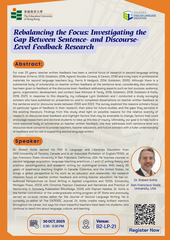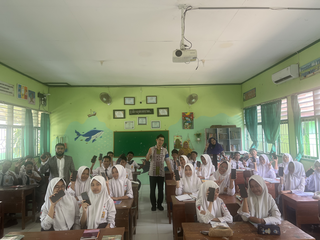Roleplay as Tool in Teacher Education: Making Policy and Curricula Come Alive
- 01 Feb, 2019 | 12:45 - 14:15
- D2-LP-04
- Department of English Language Education
- Seminar
- English
- Prof Francis M. Hult
- Department of English Language Education
Speaker: Prof Francis M. HULT (Jönköping University; Lund University, Sweden)
Teachers are on the front lines of educational language policy and planning (LPP). Without training in conceptual tools for reflection and engagement, there is a risk that educators become uncritical implementers of top-down government initiatives. As contemporary LPP research has shown, well-trained teachers have the potential to act as active agents in policy processes. A key consideration in teacher education, then, is to guide pre-service educators towards an understanding of LPP principles and how those principles can be applied in practice. In this talk, I present a project that draws upon roleplay to engage pre-service English teachers with language policy. Roleplay, as imaginative by nature, allows participants to take on new positions and navigate real-world challenges. As such, it has the potential to make otherwise abstract ideas in policy and curricular documents concrete and clearly connected to practice. I describe here the design of the project and its implementation as part of an educational sociolinguistics course for pre-service English teachers. The outcomes of the project, documented through reflective journaling, show that pre-service teachers gained an appreciation for policy-practice connections as well as the complexities of interpreting policy documents with colleagues.







